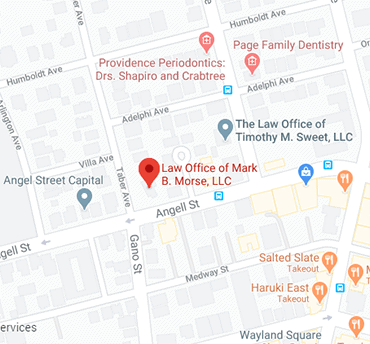What Investigative Method Does The Disability Insurance Company Use To Deny Or Terminate Benefits?
They will, first and foremost, hire their own independent doctors. I use the term “independent” very loosely; they are doctors who have been hired to help the insurance company review their records and make a determination as to whether you meet the definition of disability, but companies tend to use the same medical professionals over and over again.
In addition to the medical professionals they retain for these purposes, the disability providers will oftentimes hire private investigators to conduct surveillance to see whether your public activities are consistent with what you claim to be your disability. On many occasions, they will also hire vocational analysts, who will classify the type of work you’re involved with and make a determination as to whether, based upon the documented medical evidence, you are able to perform the functions of that job or, at a later point, any other type of job in the job market.
These are the types of professionals that are often hired to assist the claims examiner in determining whether you have a claim and whether you remain disabled under the terms of the policy.
If My Employer, My Doctor, And I All Agree I Cannot Return To Work, How Can The Insurance Company Still Refuse My Claim?
The insurance company often does refuse claims in spite of the fact that your employer, your doctor, and anybody who knows you believe that you truly are disabled and are unable to perform the functions of your job. They will do so on the basis of the medical professionals whom they hire to review you records to determine if the objective medical criteria substantiates your disability and whether your medical doctor’s statements have been consistent with the extent of your disability.
The insurance company will examine all of these different tests, they’ll review the medical records, and if they find some sort of ambiguity in your own medical professional’s records, they will exploit that—anything to help them make a determination that you do not meet the definition of disability as considered under the policy.
Is It True That, Under The Employee Retirement Income Security Act (ERISA), A Claimant With A Denied Or Terminated Claim Must Exhaust Administrative Appeals Before Their Case Can Be Brought To The Court System?
That is not only true, but it is often dealt with very strictly, particularly in terms of time requirements. There have been claims that have been foreclosed, meaning they’re not allowed to go any further, because the strict time requirements set forth in the appeal process have not been met. Before you are able to bring a claim in federal court (where these claims generally wind up), you must exhaust administrative remedies in accordance with the provisions set forth in the plan.
What Mistakes Do People Make Once Their Disability Benefits Have Been Denied Or Terminated?
The biggest mistake that most people make when they’re denied benefits is just accepting that decision as final, rather than aggressively pursuing the process through the appeal’s period and, if denied, pursuing it further through federal court. Most of these disability claims have a fairly long life, so depending on your age, it could mean the difference between a long period of time in which you are able to recover benefits or nothing, if you just accepted the decision at that early stage where they deny benefits quite frequently.
It can be time-consuming to gather the medical evidence, and it requires the cooperation of your medical providers. Nevertheless, it is, more often than not, worth pursuing your case vigorously and aggressively if you have a bona fide disability, as most people do (otherwise, you wouldn’t have gotten benefits in the first place). I have found that in most instances when the case has been pursued through the appeal process, or through a federal court lawsuit if necessary, a favorable result is reached and the client is made satisfied with the results they should have had in the first place.
For more information on Long-Term Disability Benefits, an initial consultation is your next best step. Get the information and legal answers you are seeking by calling (401) 831-0555 today.

Call Now To See How We Can Help!
(401) 831-0555

